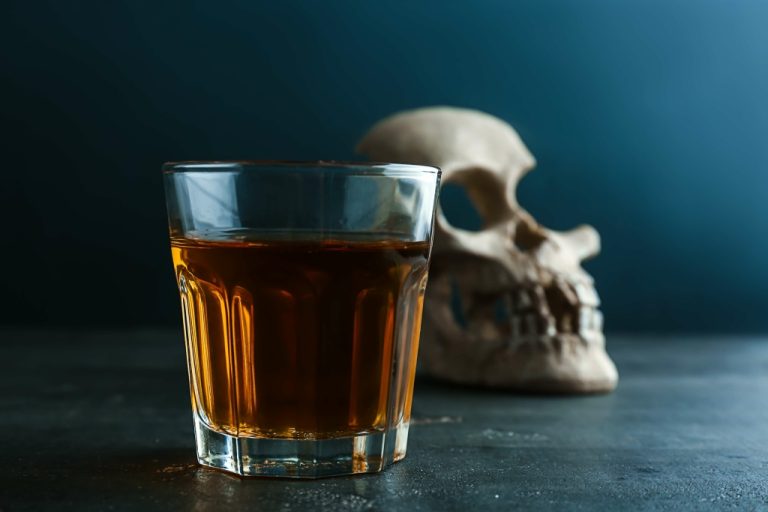Drinking wine can come with a particular delight and another slew of feelings. In contrast, the volunteers who’d been drinking the flat champagne had an average of 0.39 milligrams of alcohol per millimeter of blood. Ridout tweaked the specific intakes to make sure everyone consumed the same amount of alcohol per kilogram of body weight. Being tired can really put a damper on your day, to the point it feels like all the strength has been sucked out of you. While lack of sleep can certainly make you feel fatigued, wine can also have the same effects. Sulfites, which are used as preservatives in wine, can trigger allergic reactions, leading to symptoms such as headaches and difficulty breathing.
Why Does Wine Make My Face Red And Hot
Management focuses on minimizing alcohol consumption or avoiding it altogether. A significant factor in the wine flush for many individuals, particularly those of East Asian descent, is a genetic variation affecting the enzyme aldehyde dehydrogenase 2 (ALDH2). This enzyme is responsible for breaking down acetaldehyde, a toxic byproduct of alcohol metabolism. Alcohol https://ecosoberhouse.com/ can trigger hot flashes, especially during a hangover when the body’s temperature starts to rise. Sweating and hot flashes are signs of the body’s fight-or-flight response. As we get older, our liver function can decline, making it harder to efficiently metabolize alcohol.
Are night sweats a sign of alcohol withdrawal?
Wine, especially red wine, has been found to contain small amounts of melatonin. This could potentially contribute to the drowsiness and tiredness experienced after consuming wine. This genetic condition means that you experience negative symptoms when drinking alcohol because your body is unable to process it properly. Because the body can’t break down alcohol, it’s toxic byproducts flood the system and accumulate with each drink you have. On top of those reasons, the individual may have an alcohol intolerance. An alcohol intolerance is commonly mistaken for an alcohol allergy and is often misdiagnosed.
- Individuals vary in their tolerance to histamine and their body’s ability to metabolize it.
- On the other hand, if you find yourself sweating the morning after you drink, this is likely a hangover symptom.
- This can make the body feel warmer than usual as it tries to eliminate the excess alcohol in your body.
- It’s also wise to avoid further drinking until you feel back to normal.
Get Help For Alcohol Addiction
- Wine, like other alcoholic drinks, is a diuretic, which means it increases urine production.
- Alcohol can be a major contributor to hyperhidrosis, or excessive sweating.
- But this isn’t just an Asian phenomenon; ALDH2 deficiencies exist in populations worldwide, although at lower frequencies.
- Therefore, consuming alcoholic drinks with lower alcohol content can help reduce the frequency of urination.
- Seeking professional treatment from a dermatology provider can help you improve the appearance of any alcohol-related skin damage.
This histamine release can again result in the dilation of blood vessels in the face, leading to the redness and heat. Another factor that can contribute to the red face phenomenon is the presence of sulfites in wine. Sulfites are commonly used as preservatives in many food and beverage products, including wine. While sulfites are generally safe for consumption, they can cause allergic reactions in some individuals.
These genetic differences impact how efficiently you can metabolize alcohol. As with the food you eat, the stomach and small intestine digest the alcoholic drinks you consume; most of this process occurs in the latter. The liver produces enzymes that break down alcohol so your body can absorb it. Alcoholic drinks, including wine, have a diuretic effect, which means they increase urine production.

Other methods to reduce excessive sweating include the use of topical antiperspirants containing aluminum salts, such as aluminum chloride hexahydrate. These solutions work by plugging sweat pores and reducing the amount of sweat released from the body. Sweating disrupts your daily routine, and if it causes lightheadedness, chest pain, or nausea, you should seek medical attention as soon as possible.
Also, the bacterial content of your gut changes over the course of your life, so you could go from having no problems with drinking wine to having wine cause gas. Dr Oz’s solutions included taking Probiotic Supplements, which I recently started taking and cannot say enough good things about them! Some people are sensitive to sulfites and may experience fatigue or other symptoms after consuming wine. However, it’s important to note that the majority of people can tolerate sulfites without any adverse effects. As a result, alcohol can have sedative effects, making us feel drowsy and tired.
Even those who only deal with nasal congestion from alcohol can benefit from Sunset’s ingredients. If you’ve ever wondered – why does my face get red when I drink – this could be why. If you are experiencing alcohol poisoning, you will need emergency medical help. An alcohol overdose can lead to serious medical conditions and potential death. The quality or price of the wine does not directly impact the likelihood of congestion.
Applying antibacterial powder or lotion to the area before going out can create a protective barrier against moisture and bacteria. Additionally, using products like panty shields and pant liners made with absorbent materials can help to keep excess sweat away from the skin. If lifestyle changes alone are not helping you manage your condition, prescription medications may be an option to consider.
Consulting with your doctor is the best way to determine if testing is appropriate. Have you ever noticed that consuming a glass or two of wine can cause you to experience a mild flushing or warming sensation? This phenomenon is not uncommon, and there are several reasons why it might happen. In reality, drinking alcohol can cause a decrease in your internal body temperature. If someone drinks to the point of alcohol poisoning, why does wine make me hot their body temperature could drop significantly, potentially leading to hypothermia. Acetaldehyde is the root cause of an alcohol flush, and it’s also responsible for other negative side effects of alcohol consumption, like nausea, headache, and rapid heartbeat.

On the other hand, wine what is Oxford House also cannot guarantee quality sleep despite the positive responses of people who have tried it. According to studies, alcohol, in specific amounts, impedes rapid eye movement or REM sleep. First and foremost, wine has alcohol content, and alcohol, in a general sense, is a depressant.
Does Wine Make You More Tired Than Other Alcohol?
Prolonged exposure to high levels of acetaldehyde has been linked to an increased risk of certain cancers, particularly esophageal cancer, especially in individuals with ALDH2 deficiency. Alcohol consumption can also affect how we metabolize and absorb nutrients. Research has shown that chronic alcohol consumption can impair metabolism by decreasing fat oxidation and increasing fat deposition, leading to an increase in body weight.